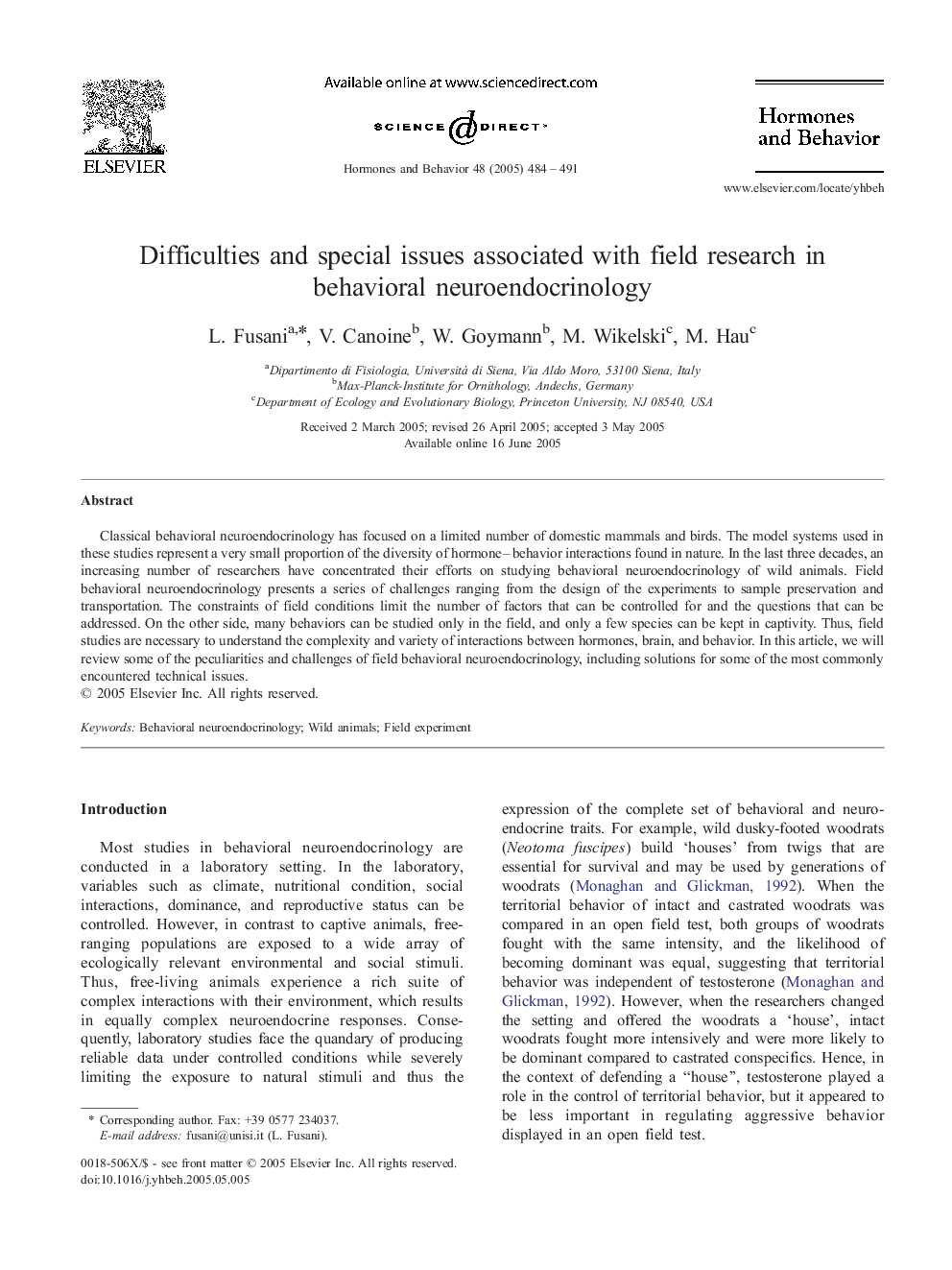| Article ID | Journal | Published Year | Pages | File Type |
|---|---|---|---|---|
| 10300742 | Hormones and Behavior | 2005 | 8 Pages |
Abstract
Classical behavioral neuroendocrinology has focused on a limited number of domestic mammals and birds. The model systems used in these studies represent a very small proportion of the diversity of hormone-behavior interactions found in nature. In the last three decades, an increasing number of researchers have concentrated their efforts on studying behavioral neuroendocrinology of wild animals. Field behavioral neuroendocrinology presents a series of challenges ranging from the design of the experiments to sample preservation and transportation. The constraints of field conditions limit the number of factors that can be controlled for and the questions that can be addressed. On the other side, many behaviors can be studied only in the field, and only a few species can be kept in captivity. Thus, field studies are necessary to understand the complexity and variety of interactions between hormones, brain, and behavior. In this article, we will review some of the peculiarities and challenges of field behavioral neuroendocrinology, including solutions for some of the most commonly encountered technical issues.
Related Topics
Life Sciences
Biochemistry, Genetics and Molecular Biology
Endocrinology
Authors
L. Fusani, V. Canoine, W. Goymann, M. Wikelski, M. Hau,
